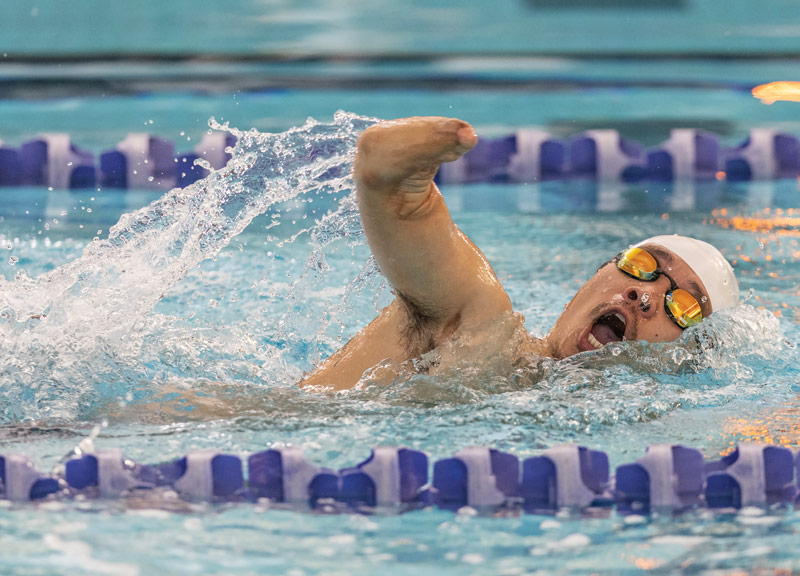
Hyeongyoon Na of South Korea, who lost both forearms to an electric fence at the North Korean border, competes in the 50m freestyle.
Scenes from the Invictus Games Vancouver-Whistler 2025
It’s truly a competition like no other—more than 500 wounded, injured or ill athletes from 23 countries, all veterans or serving military, competing in 11 adaptive sports during nine gruelling, but oh-so-rewarding, days.
The competition is fierce, yet the primary foes at the Invictus Games aren’t the men or women next to you on the starting grid, the playing court, or any other external place. They’re the demons that reside within virtually each and every participant, nurtured by years of physical and mental anguish, the litany of seemingly insurmountable obstacles and monumental challenges that brought them here.
For almost all of them, it has been a long and painful process, one small step at a time, at first tentative, unsteady, discouraging. Then small victories, a growing sense of purpose and accomplishment and, ultimately, a blooming confidence that landed them among the beautiful vistas of Vancouver and Whistler, B.C., from Feb. 8-16, 2025, for the Games’ first winter adaptive sports.
They couldn’t have done it without family, friends and comrades-in-arms. They’re all here, imparting their love and support in different ways, big and small.
They bask in the camaraderie of unique, shared experience. They have all been places, done things, met tests that most cannot know. Their bonds are deep and lasting.
The winning and losing is all but irrelevant; they’re all winners in their own ways. After all, they are here.
For some, Invictus marks a triumph over life-altering setbacks, an emergence from solitary darkness onto a world stage flooded with glorious light. For others, the struggles won’t be over, the getting here, the doing of it but stepping stones along a much longer path, made more navigable by the inspiration of it all.
“Out of the night that covers me,” British poet William Ernest Henley wrote in the poem for which the Games are named, “Black as the Pit from pole to pole,/I thank whatever gods may be/For my unconquerable soul….
“I am the master of my fate/I am the captain of my soul.”
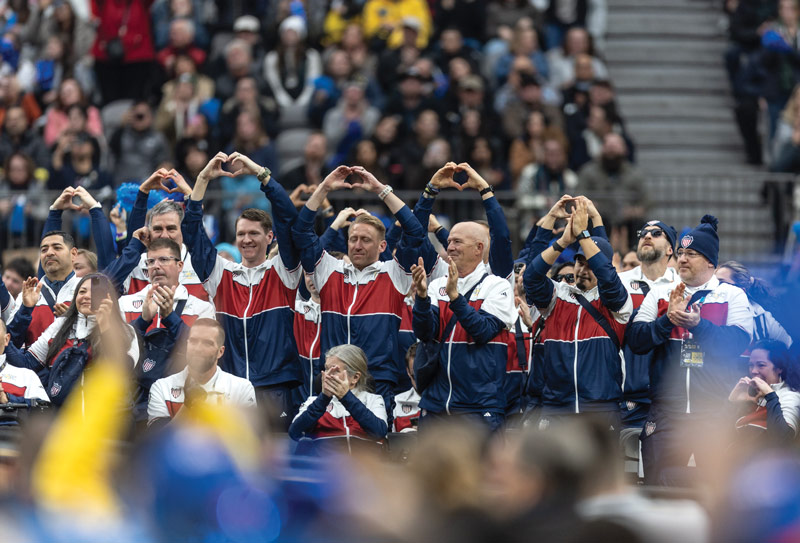
In one of the most moving moments of the Games, U.S. athletes stood and showed their love for their Canadian comrades-in-arms after they were met with a smattering of boos during the opening ceremonies’ parade of nations.
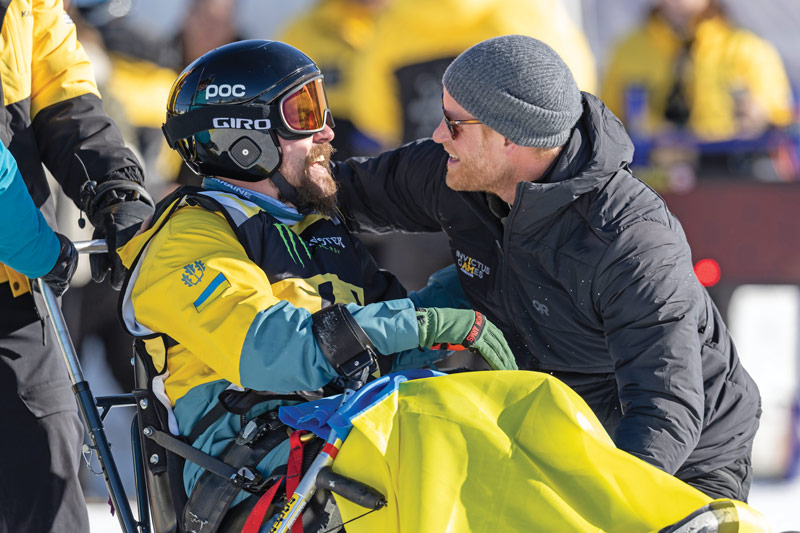
Prince Harry congratulates Oleksii Horb of Ukraine after his silver medal finish in the men’s novice IAS1-sit ski at Whistler. The Ukrainians finished 1-2 in the event, won by Serhii Hordiievych.
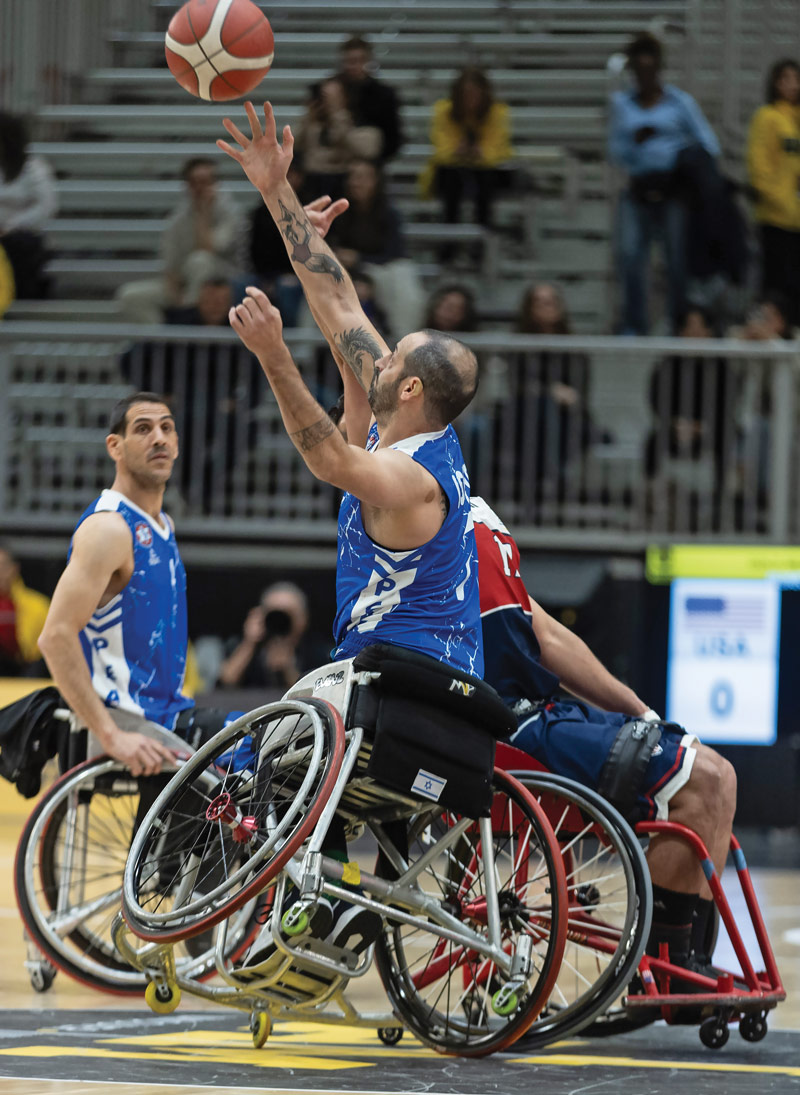
Ziv Eliyahu of Israel takes the tip, in more ways than one, en route to a dominating 62-7 gold medal victory over the United States.
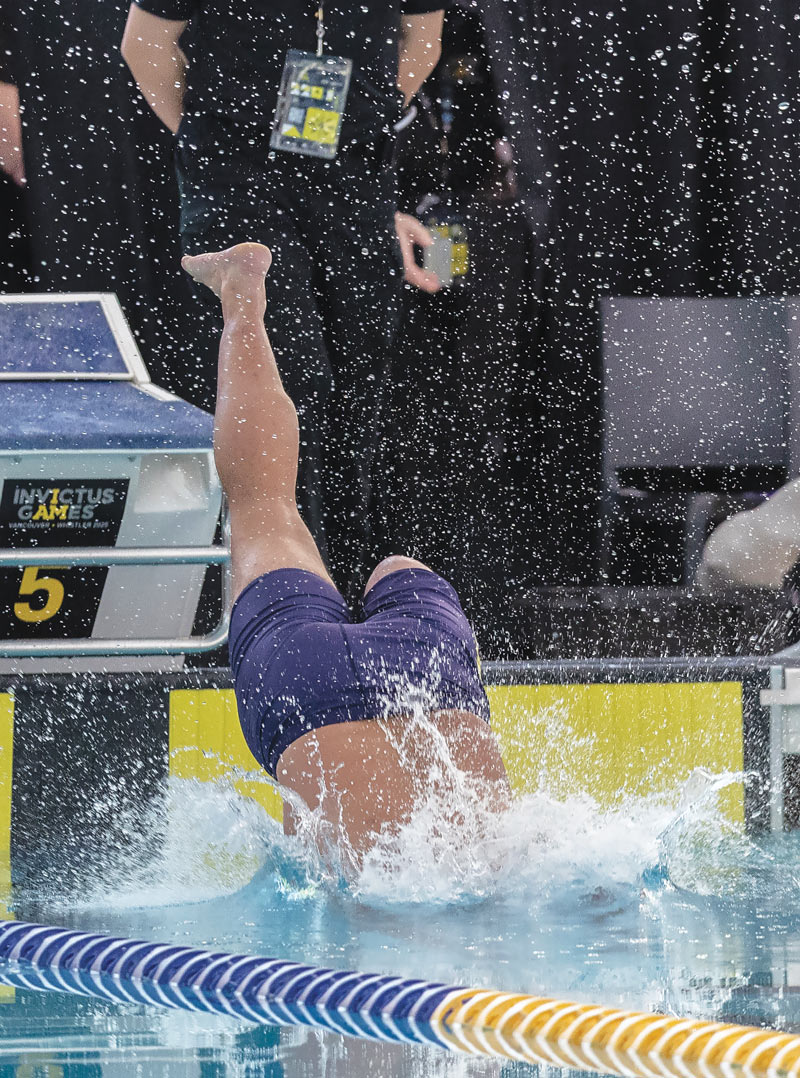
They bask in the camaraderie of unique, shared experience. They have all been places, done things, met tests that most cannot know.
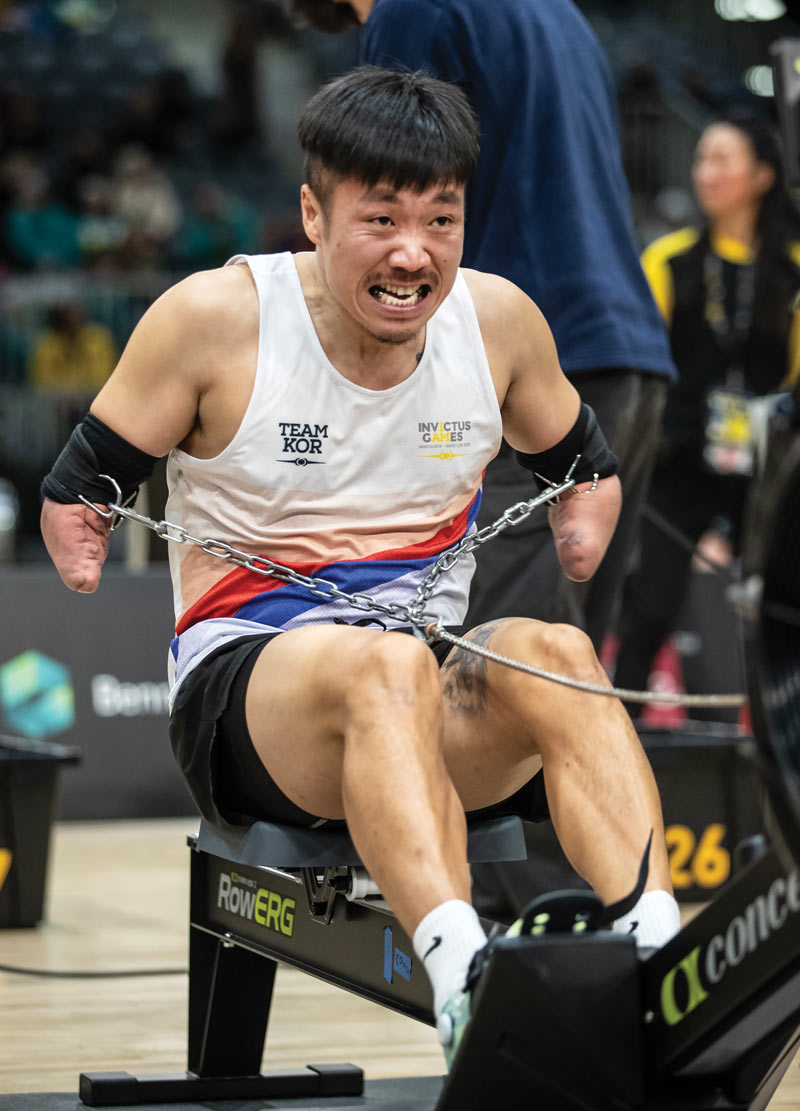
Hyeongyoon Na of South Korea was a multidisciplinary athlete at the Invictus Games, competing in swimming and the IR3 four-minute endurance rowing race.
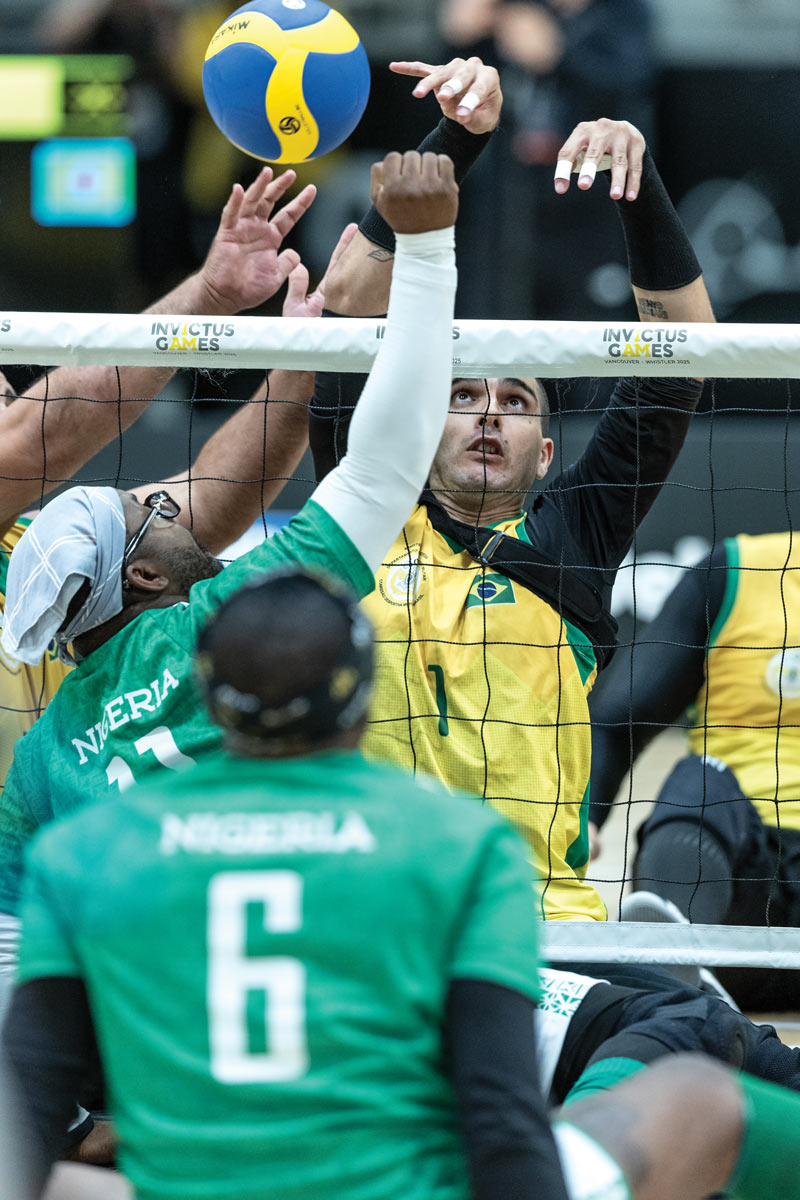
A powerhouse on offence and defence, Alex Witkovski, leader of Brazil’s seated volleyball team, blocks one against Nigeria as the South Americans take the gold medal match in straight games.
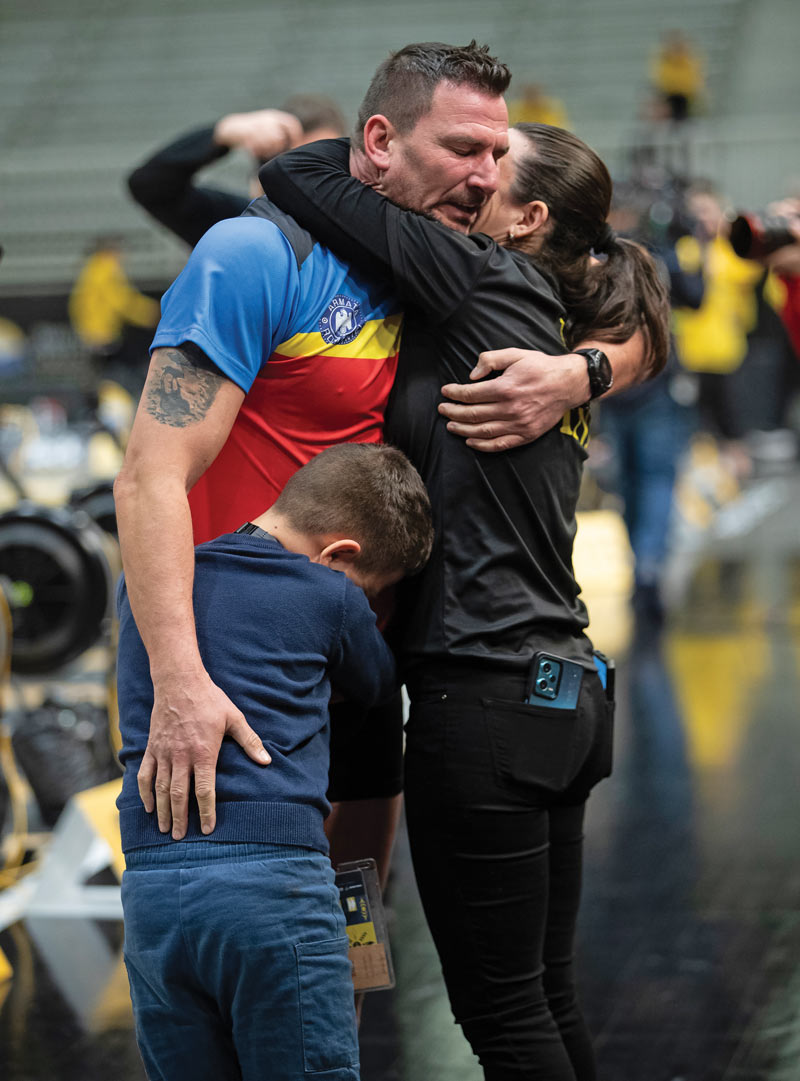
Petrisor Onea of Romania gets hugs and kisses from wife Laura and son Mihai after finishing the IR6(M) four-minute endurance rowing race.
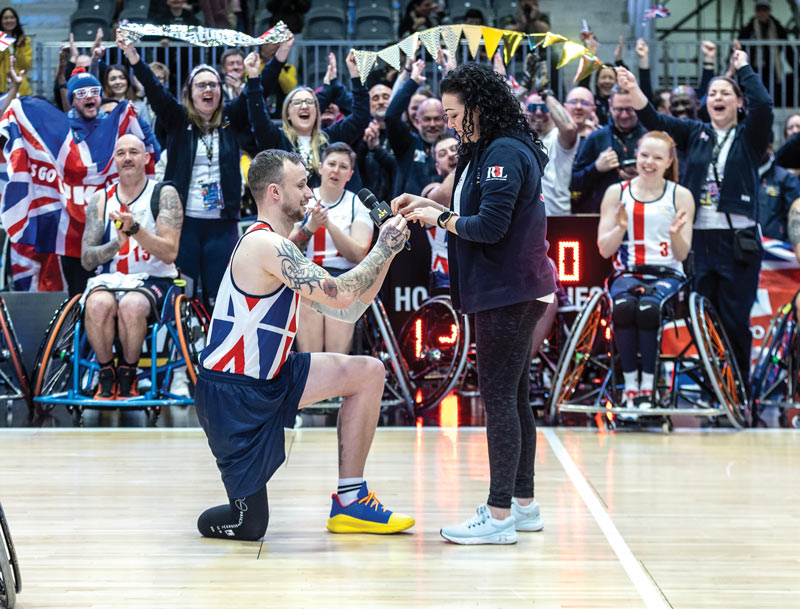
James Cairns, who lost his lower leg to a sniper while serving with the British Royal Yorkshire Regiment in Afghanistan, proposed to girlfriend Hannah Wild after the U.K. team’s wheelchair basketball game versus Colombia. Britain lost the game but Cairns won her heart. She said yes.
For more Invictus Games coverage, go to Legionmagazine.com/features/Invictusgames2025
Advertisement



















